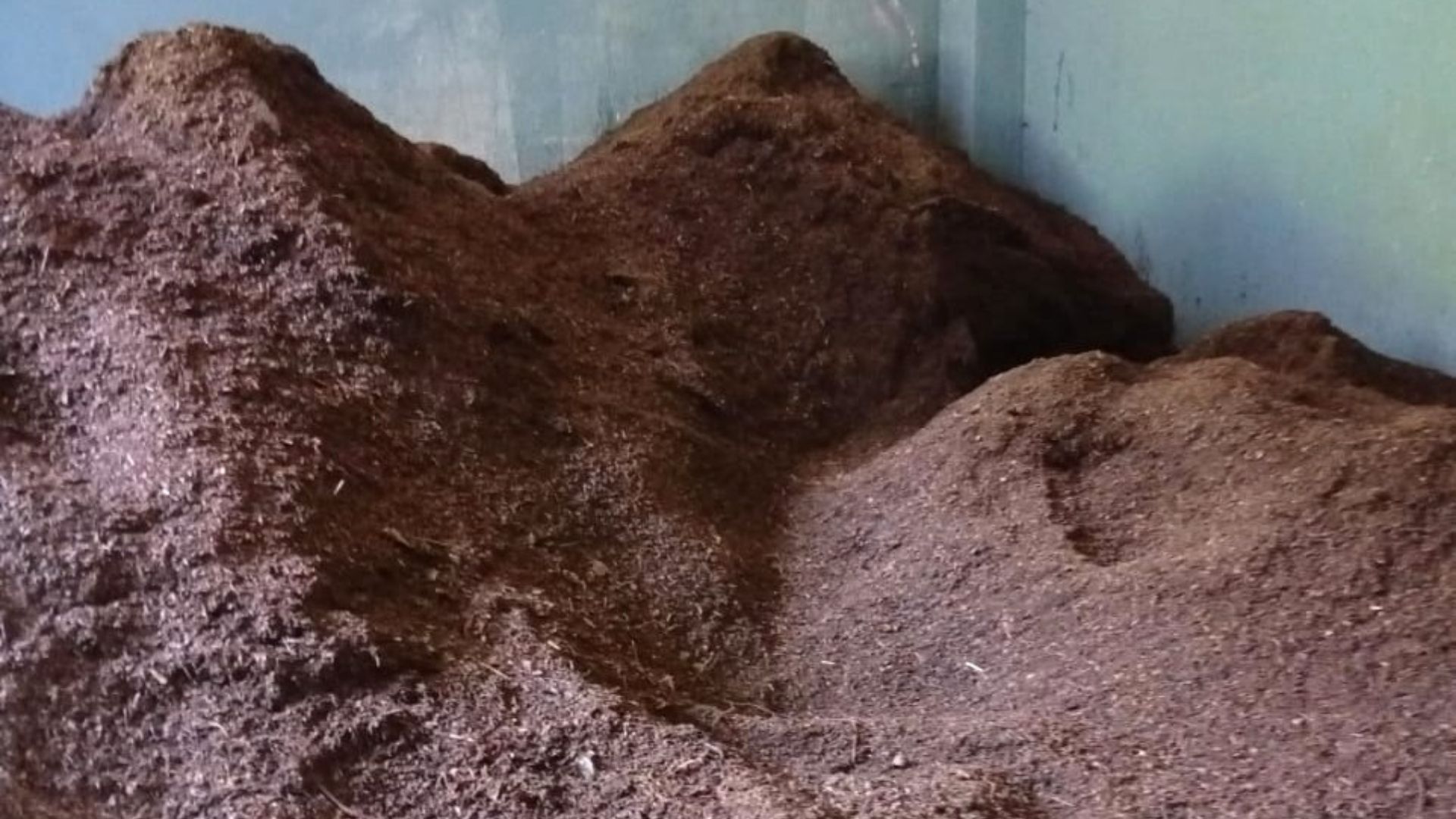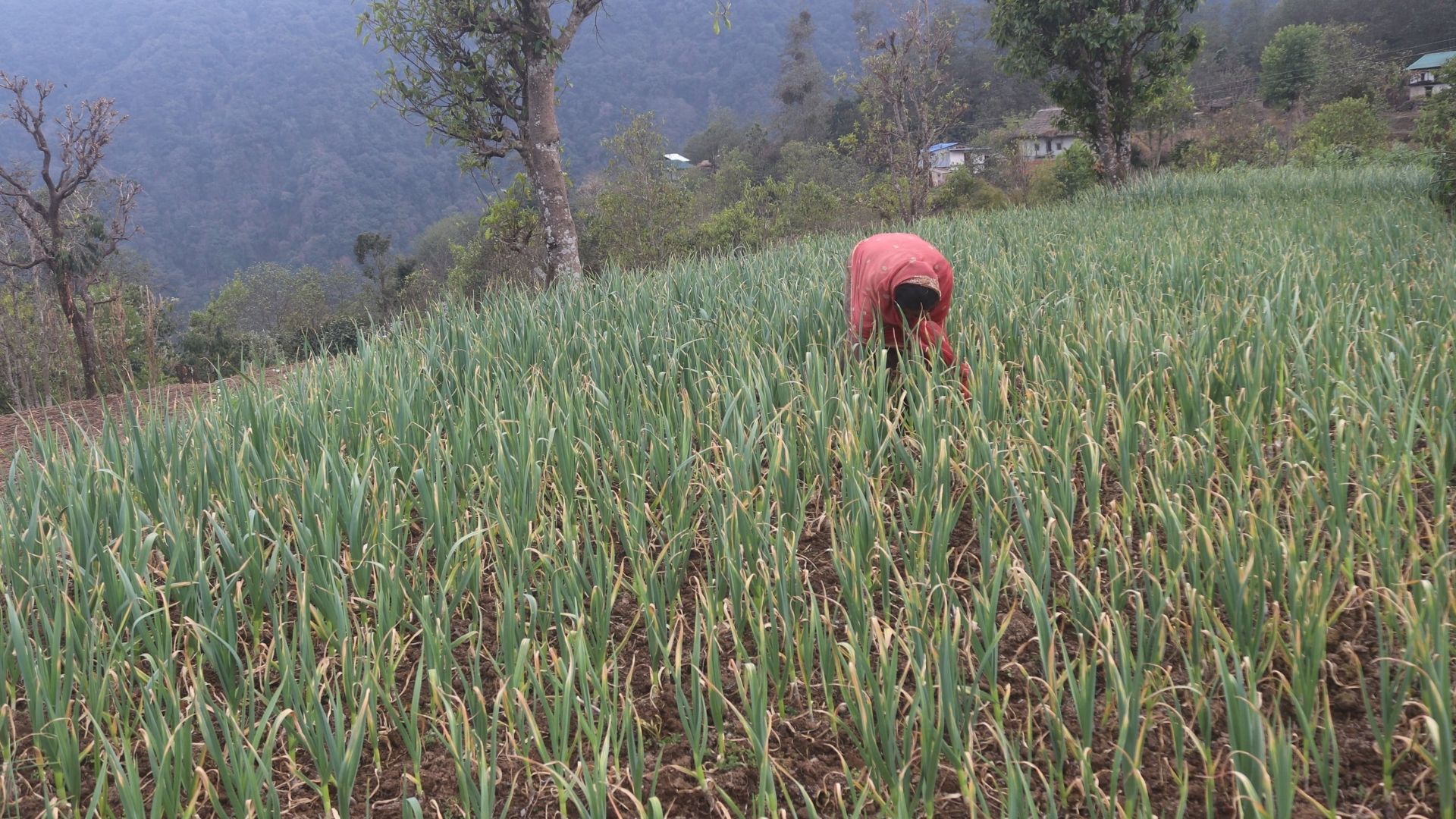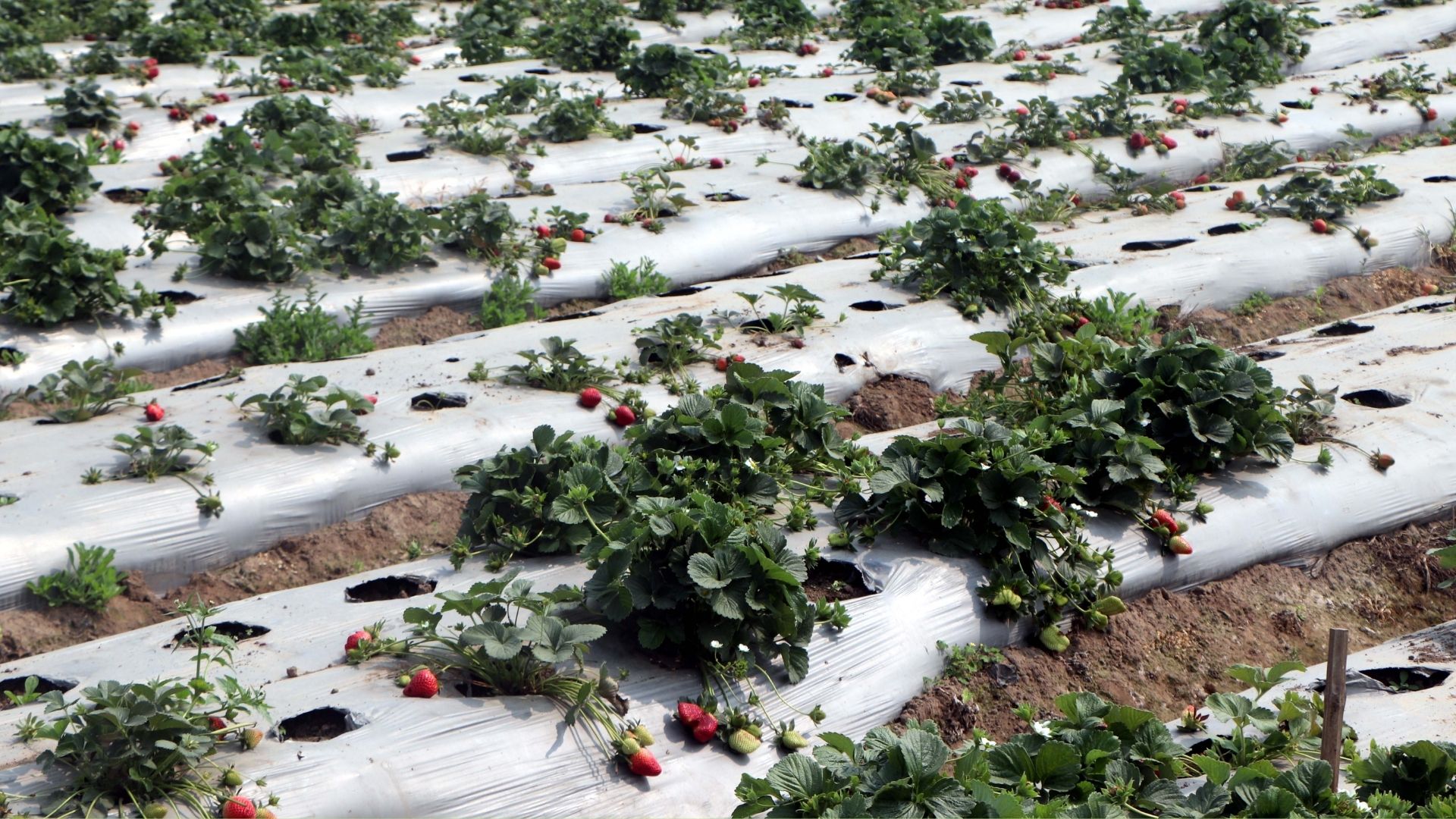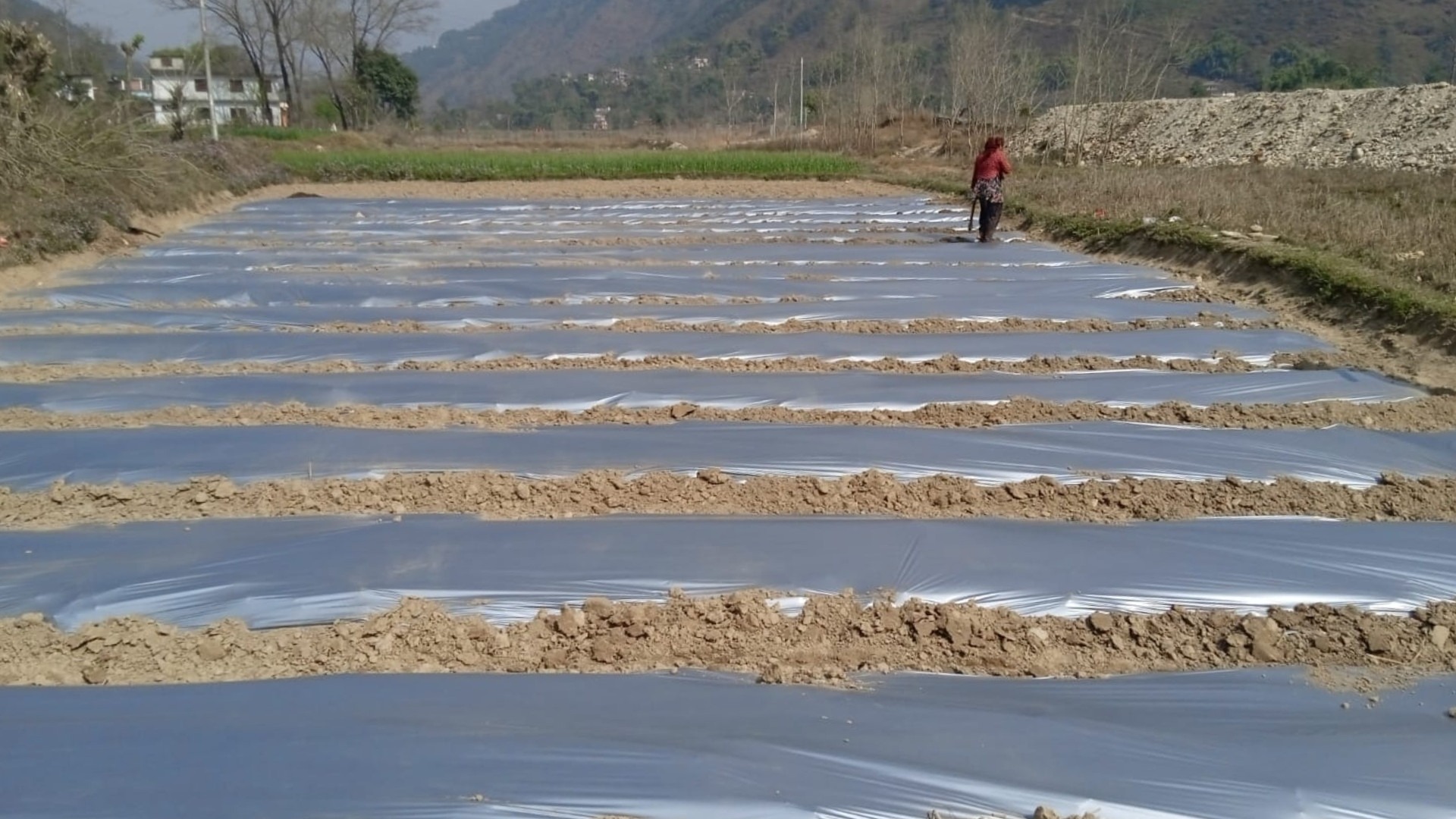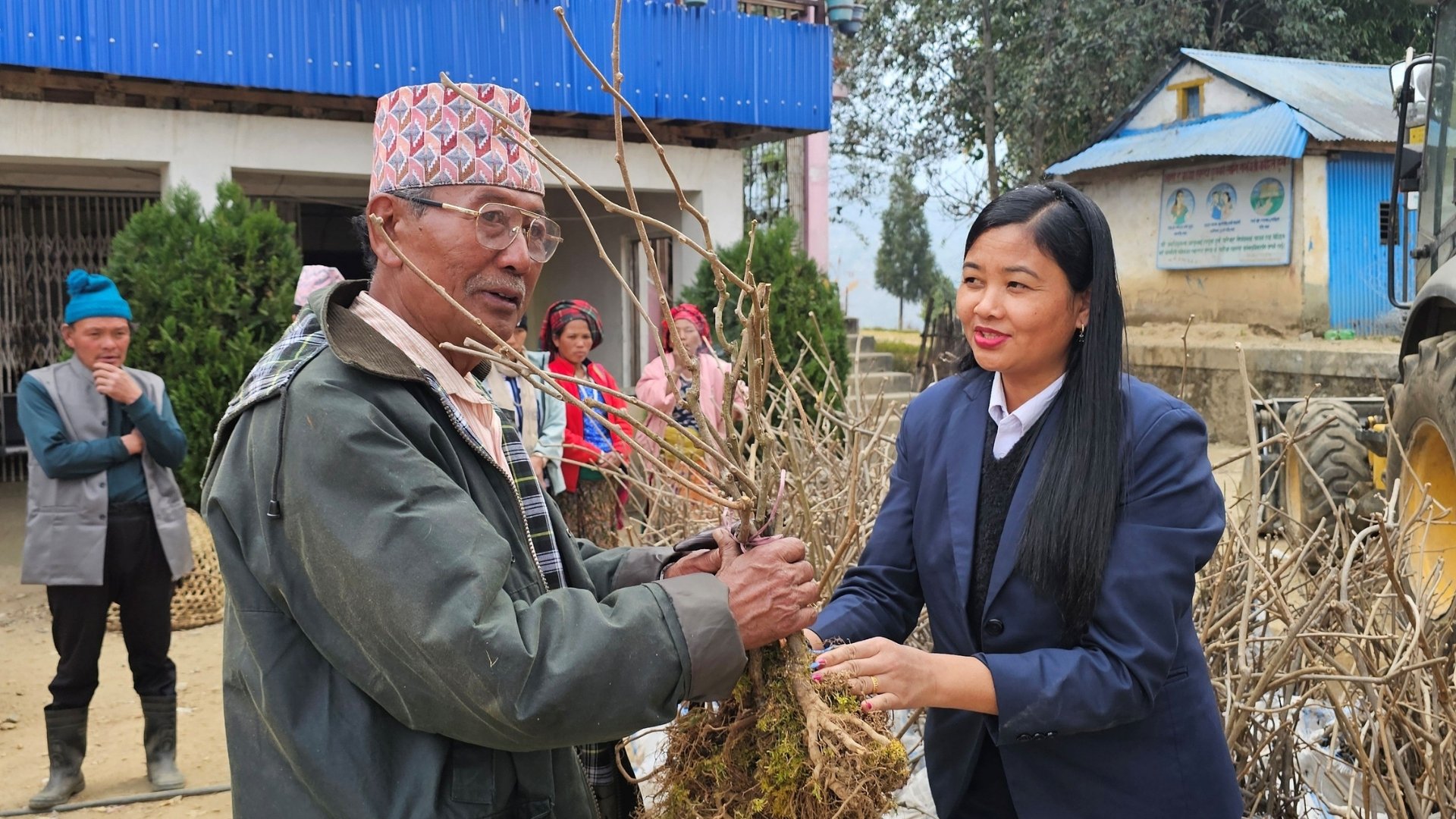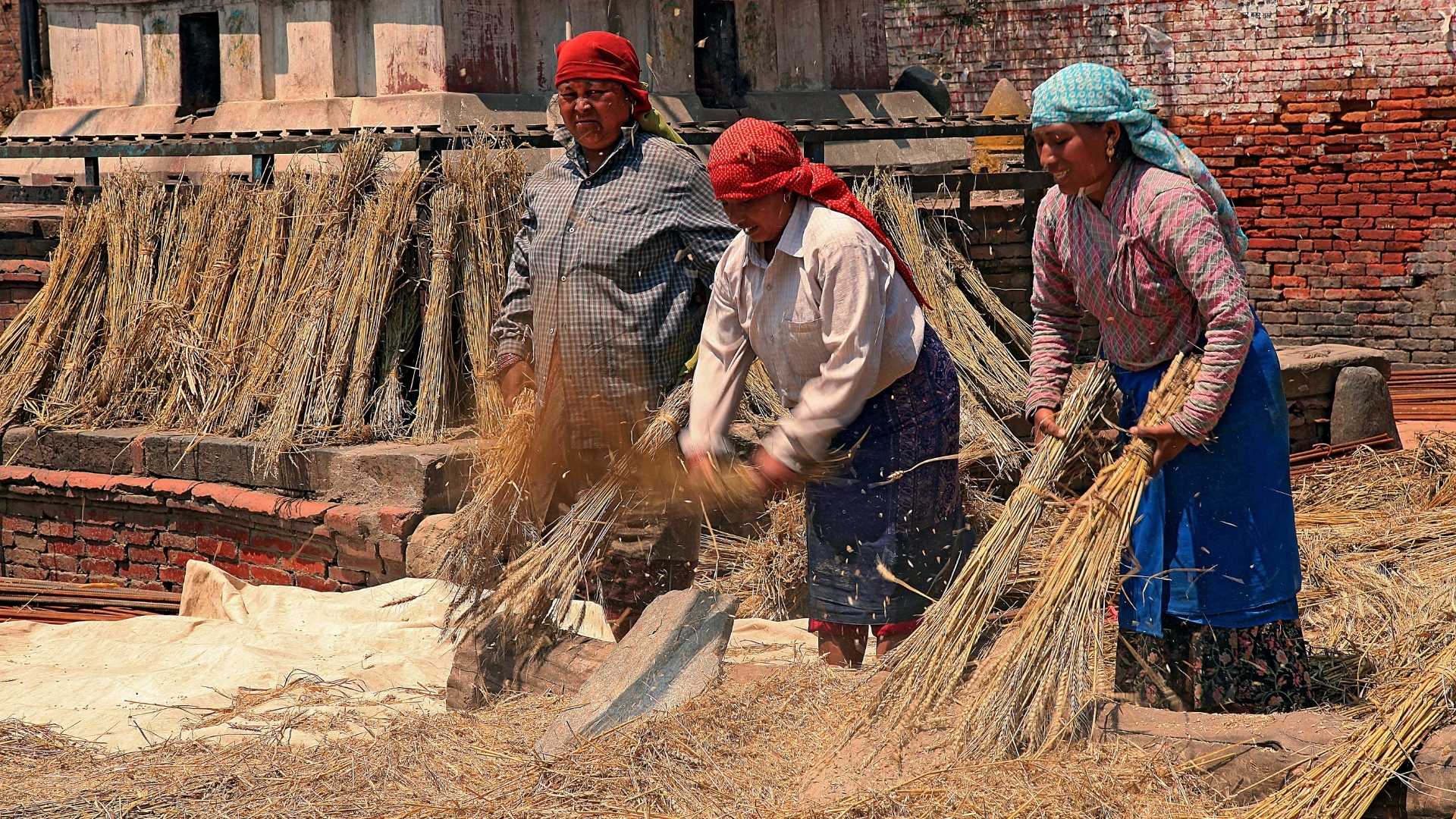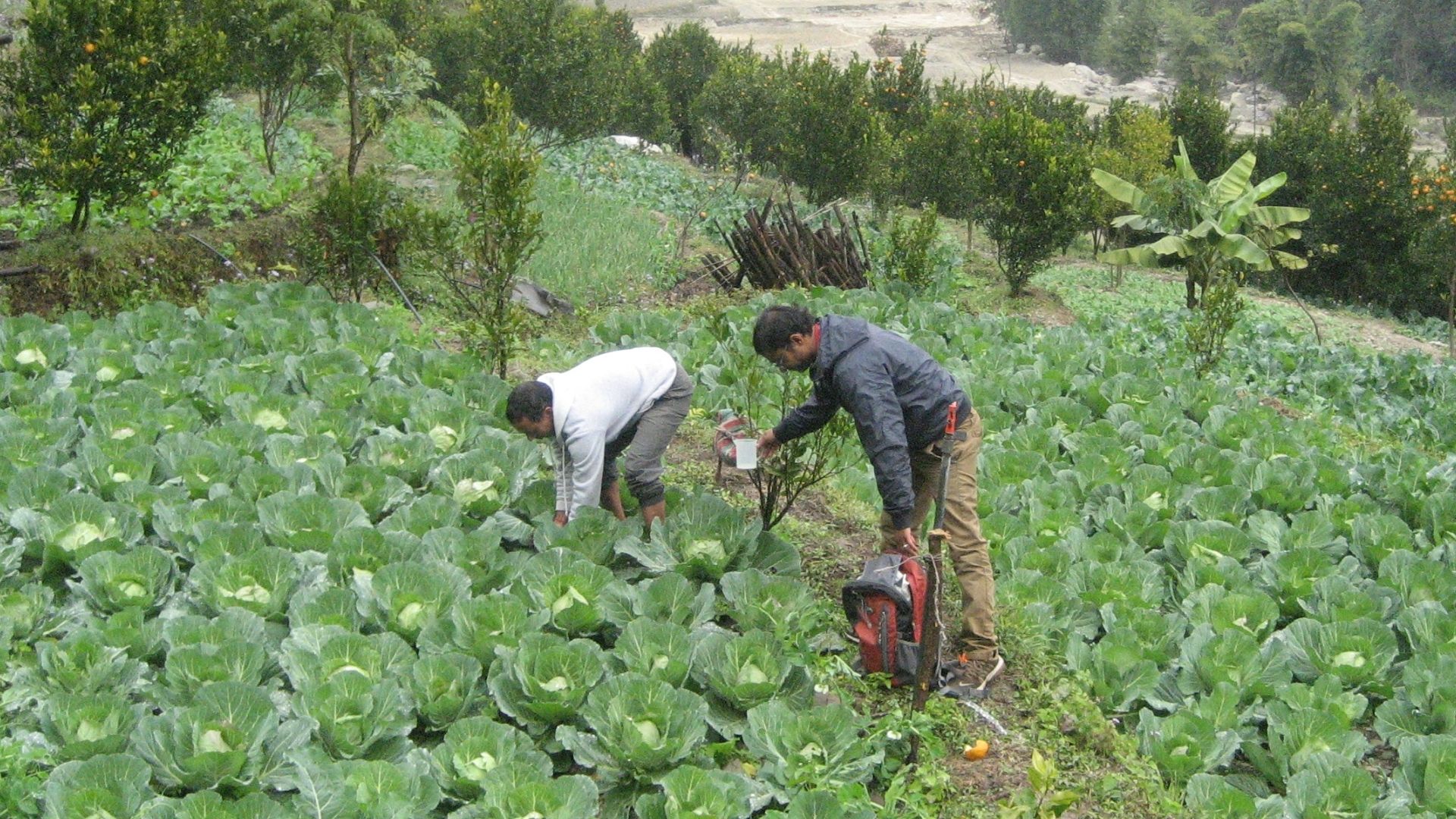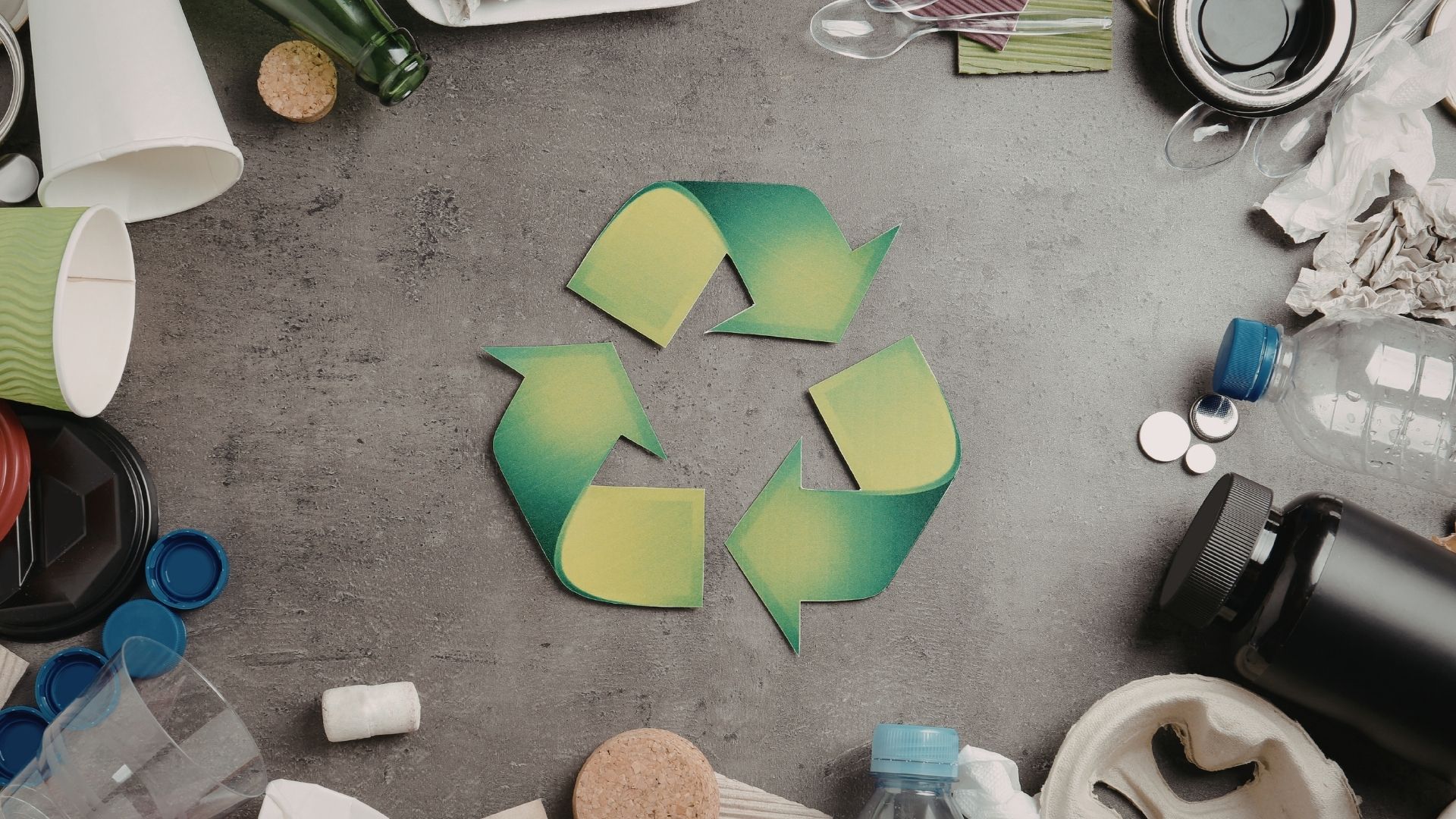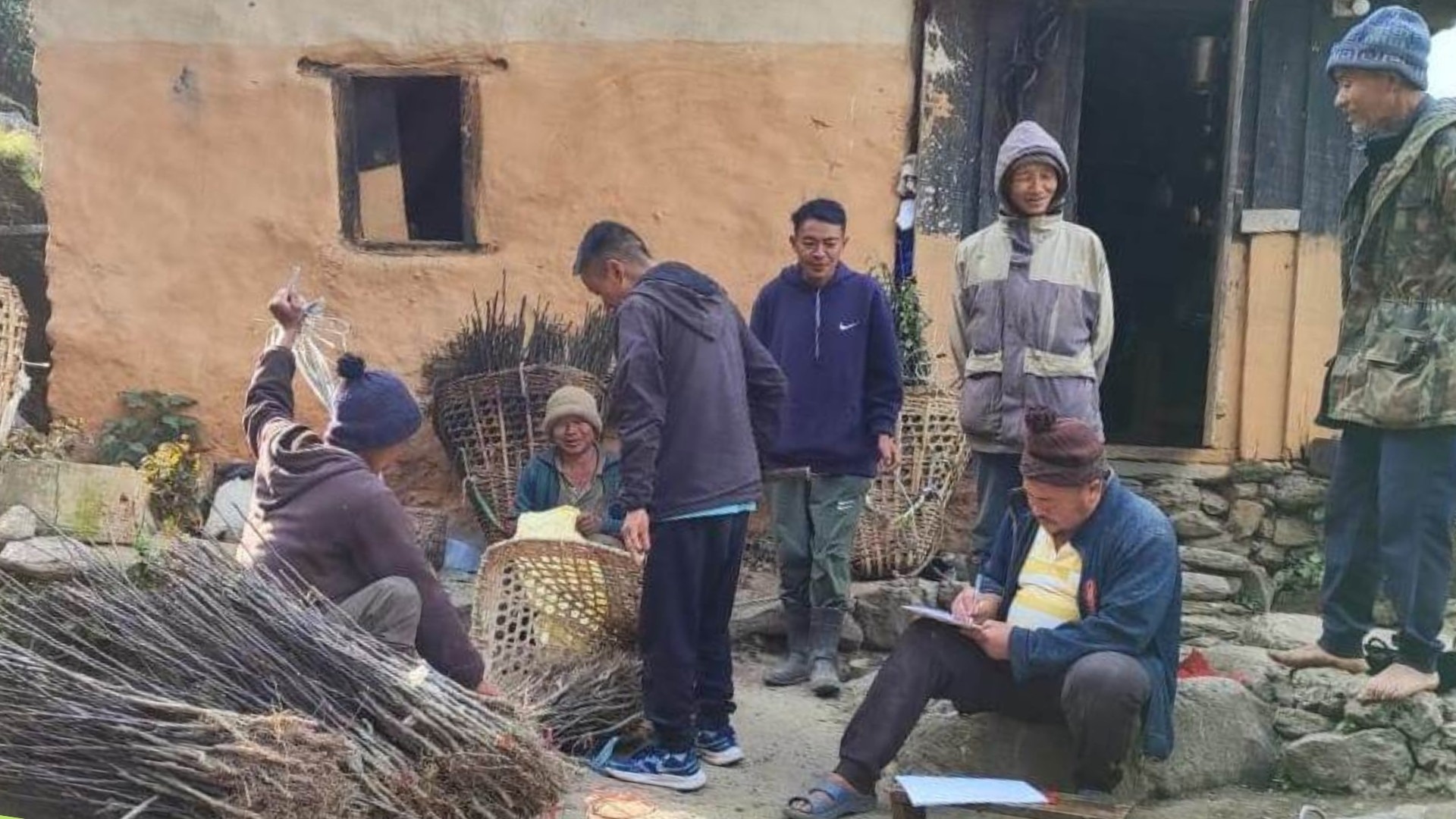Pokhara Metropolitan City–18’s Thotne Khola Community Forest User Group in Sarangkot has begun producing organic fertilizer using leaf litter and forest biomass.
The group has started collecting dry leaves, twigs, and brushwood from within the community forest and converting them into organic compost. According to group chair Dinesh Shrestha, the initiative aims to promote environmental conservation, enhance biodiversity, improve soil fertility, and create green jobs by utilizing natural resources sustainably.
Shrestha said that forest biomass collected from shaded areas of the forest has been processed into compost using modern technology. The group has produced and sold its first batch of 35,000 kilograms of organic fertilizer, marketed through the Thotne Khola Agriculture Cooperative Ltd. The organic compost is priced at NRs 25 per kg, while vermicompost sells for NRs 40 per kg. The group earned NRs 13,000 from its initial sales.
“Using organic fertilizer increases soil organic matter, maintains long-term fertility, and promotes chemical-free agricultural production,” Shrestha said. The project, launched under the Federation of Community Forest Users Nepal’s “One Forest, One Product” campaign, is expected to generate green employment, expand organic farming practices, and support climate-resilient production systems.
Leaf litter is first shredded into smaller pieces with modern cutting machines and then placed inside green plastic tunnels where earthworms are used for vermicomposting. The Livelihoods and Biodiversity Research and Development Initiative (LIVARD) supported the project with 25,000 earthworms and the necessary physical infrastructure.
The group spent more than NRs 400,000 purchasing raw green and dry leaf litter at rates of NRs 3 per kg and NRs 5 per kg, respectively. Laboratory tests conducted by the Soil and Fertilizer Quality Testing Laboratory under the Ministry of Agriculture and Land Management, Gandaki Province, confirmed that the fertilizer meets required standards.
According to the report, the compost contains 8.1% moisture, pH 6.2, 1.3% nitrogen, 0.5% phosphorus, 3.03% potassium, and 25.34% carbon. Technician and member Prashant Shrestha said the group has produced 5-kg packets for kitchen gardens and 20-kg packets for general farm use.
The Division Forest Office, Kaski provided NRs 450,000 for infrastructure development, while the Gandaki Watershed and Climate Resilience Office supported an agricultural training program with NRs 350,000.
The community forest spans 86.75 hectares and has 192 household members. Meanwhile, the Vinayi Community Forest Group in Nawalpur District has long been producing organic fertilizer, with the local government now supporting the enterprise, which currently provides direct employment to 80 people.


